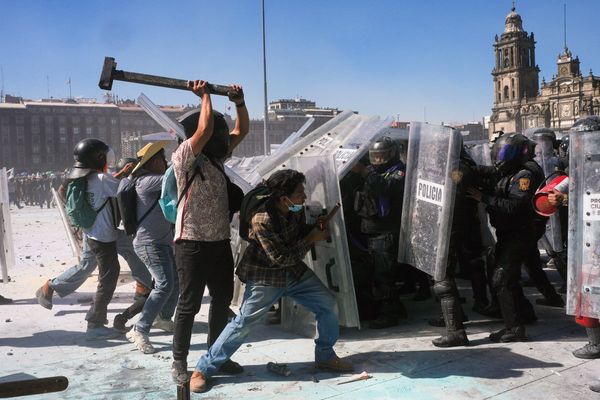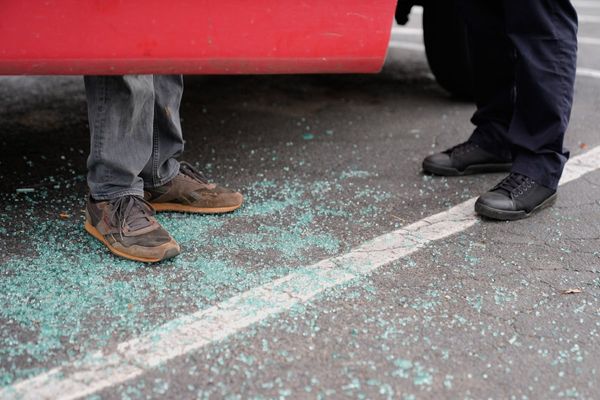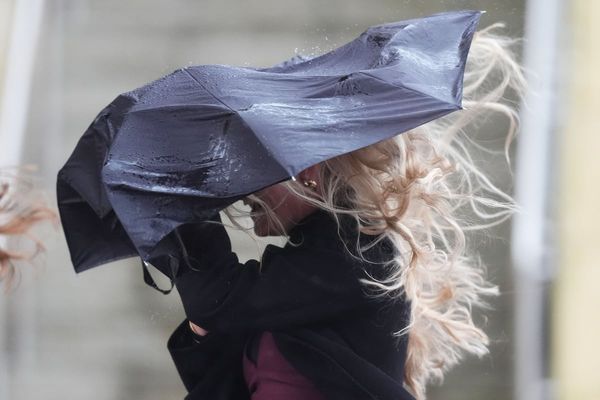
The head of Australia’s peak medical body will meet with the Labor leader, Anthony Albanese, to urge him to reconsider his “small target” strategy on health. Dr Omar Khorshid will warn that substantial funding is urgently needed to address the crisis in the country’s hospitals.
The message from the Australian Medical Association president comes after Albanese called him on Thursday morning in response to the association criticising Labor’s $135m urgent care clinic policy, announced this week, as “incoherent”.
Albanese was in the marginal seat of Hunter on Thursday, announcing that one of the 50 clinics would be built in Cessnock to take pressure off the local hospital’s emergency department.
Khorshid told Guardian Australia he expected to meet with Albanese and the party’s shadow health minister, Mark Butler, in the coming days about the party’s health platform. He said the association had not been so far consulted on any of Labor’s proposed health policies.
He said while the urgent care clinics might be popular with the public, they would not make any difference to the pressure on emergency departments. He added that he would be encouraging Labor to be more “courageous” on the issue of health.
In the lead-up to the election, both major parties have told the association they will not commit to the 5% boost to public hospital funding being demanded by states as they deal with a “logjam” of patients – leading to ambulance ramping, and patients unable to be admitted for treatment.
This 5% funding boost, which would lift the commonwealth’s share of public hospital funding to 50%, would cost about $5bn a year.
“50-50 hospital funding has not been accepted by either party as part of their platforms, and we’ve pushed it hard with both and we’ve had ‘noes’ from both so far,” Khorshid told Guardian Australia.
“We’re not giving up just yet – which is why we’re doing all this work, because we think it’s a no-brainer, basically. And the states agree with us, so we’ll keep pushing … But at this stage, we’re not expecting it to be part of either party’s announcements.”
Khorshid added that Labor had still not told the AMA what the party would be doing.
“But I’m pretty sure it won’t include 50-50, unless we are amazingly successful in the next few days,” he said.
“Neither party is interested.”
Khorshid said he would be asking Albanese – who has been pursuing a small target strategy, eschewing the multibillion policies Labor took to the last election – to “stand for health”.
“We have not seen their vision for healthcare; we have seen a few small, piecemeal announcements,” he said.
“We’re hoping that that will be a broad vision tackling the real problems, rather than a clinic here, a small thing there: marginal, seat-focused campaigns which might win elections, but won’t fix the health system.
“If [Albanese] can actually show that he stands for health, rather than spin and manipulating numbers and all this other stuff that the pollies normally do, [he needs to) actually stand up and say, ‘We will pay for it and we will find a way to pay for it.’”
Khorshid said that without the urgent injection of federal funds, which the AMA has said should be directed to increasing state hospital capacity, the crisis gripping Australia’s hospitals will worsen.
He warned this would be exacerbated by a surge in unmet demand for surgery which had been postponed as a result of the pandemic, as well as an ageing demographic.
“We’ll see a situation where you basically can’t access low-urgency elective surgery in public hospitals. You’ll just have to go private if you want a cataract or a hip replacement,” Khorshid said.
“With ED performance, you’ll see people unnecessarily dying in the back of ambulances or in ED waiting rooms – which we’re already seeing right now. We are going to see that more and more.
“I think it actually won’t be allowed to deteriorate much more than it is at the moment because it’ll just be untenable. How can you justify watching people die in emergency departments when you could do something about it? It’s at your fingers, the solution.
“I think it’ll just get so bad that eventually the crisis will create a response. But let’s get in there now, because we’ve got plenty of indicators and almost no disagreement.”
The call comes as ambulance ramping becomes an increasing problem for state governments, with the new South Australian Labor premier, Peter Malinauskas, winning the recent election largely on his commitment to fix the ramping crisis in the state.
The Queensland government has also called for the federal government to commit to the 50-50 funding pledge. It is also under pressure about the growing issue of hospital ramping, with reports this week of 000 calls going unanswered.
• The headline of this piece was changed on 16 April 2022 to reflect that the disappointment was the AMA’s, rather than the health sector in general.







